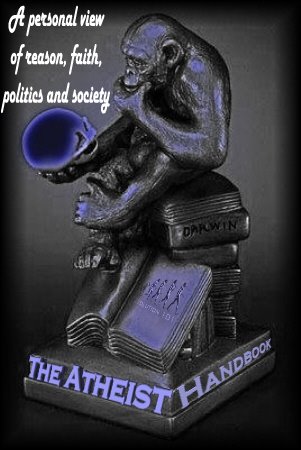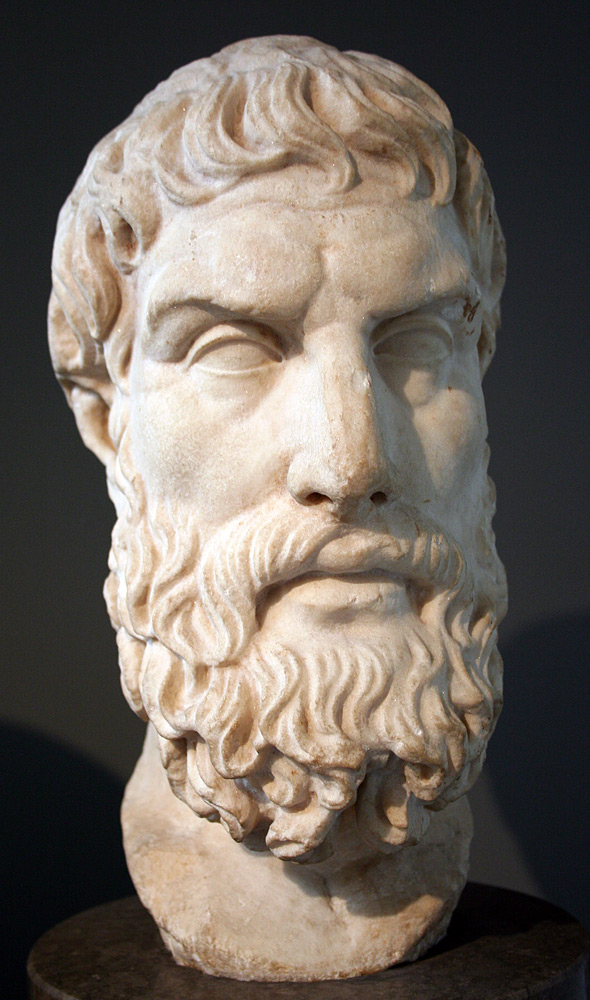
Book stores, video blogs, Youtube, tv news and newspapers are filled these days with atheists going on about religion. And not often in a nice, why can't we all get along sorta way. More in a 'get the hell off my lawn!' style. Christopher Hitchens, Richard Dawkins, Sam Harris and others are all standing up and saying the time has come for atheists to have their say. I can't agrue with them.
As you might expect, religious folks don't take the slashing critiques of a Dawkins or Hitchens laying down. One of the common threads in books like Dawkins's "The God Delusion" or Hitchens "God is not Good" is the idea that religion, at best, does not make people behave any better than someone with no religion. At worst, it gives people an excuse to do the horrible things to other people.
These observations, while leveled at all religion, are aimed more directly at the great monotheistic faiths - Christianity, Judaism and Islam. And it is followers of those faiths that fire back most often. They give several kinds of responses, and I want to focus on two of the most common here. The first is a general kind of comment that says "Well, democratic societies like Canada or the United States are free and good, and the reason they are free and good is because they are based upon 'Judeo-Christian Principles'. That being the case, religion DOES make people behave better because democracy is the best system of government yet devised." The second is to say, "Well, it's true horrible things have been done in the name of faith, but the same is true of atheists and in fact the greatest horrors of the 20 the century were created by atheists like Hitler and Stalin."
I want to address both of these points in this two part entry "Religion vs. Atheism" Here in part one, I will deal with the idea that western democracies and societies are founded on religious principles. In part 2 I will address the notion that atheists committed the worst atrocities of the 20 the century.
You will see the phrase "Canada was founded on Judeo-Christian Principles" several times a year in the letters to the editor pages of any major newspaper. This is usually in response to some article or letter about allowing homosexuals equal rights or someone of another faith doing something in public...like breathing. Ironically the phrase Judeo-Christian is almost meaningless. Jews are not Christians because they reject the claims of the New Testament, and Christians are not Jews because they accept those claims. Still, the phrase is tossed about as if it carries an authority that cannot be questioned - although the term itself and what is supposed to mean is almsot never defined.
So just how accurate is the statement that our democractic societies are based on Judeo-Christian principles?
Not very as it turns out.
First, anyone with even a passing knowledge of history knows that democracy has exactly nothing to do with either the Jewish or Christian faith. The scriptures say nothing, absolutely nothing, about organizing a free society where citizens can make the decisions. It provides no guides, no rules, or even general suggestions how to set up a free government, how to ensure all citizens (and all faiths) are protected equally under the law. They are totally silent on how to write a proper constitution, how to balance individual freedoms with the needs of society as a whole, or how to set up a free vote. There are lots of rules in the scriptures, many of which involve stoning, burning and otherwise dispatching people who do not believe in horrible ways. But not a single line on the rights and responsibilities of free citizens.
No, democracy did not come to us on stone tablets or in the blood of an executed prophet. It comes to us from people who wanted to free themselves from tyranny, who want to establish a society where citizens governed themselves and everyone was equal under the law. It came to us from the Greeks. It is to them, not to the Jews or Christians, that the great tradition of western liberal thought, free democracy and science come - specifically the Athenians and, to a lesser extent, the Spartans. It is from them that our notions of rationality, government, constitution and citizenship begin. Our society is based on Greek principles, not Jewish or Christian ones.
The American constitution, the most brilliant democratic document of all time, the Almighty is not mentioned once. God appears only in passing in the Canadian constitution, but in a reference so vague - deliberately so - that it can mean anything to anyone. It is quite true religion has played an important role in society, as it has in every society everywhere on the planet. It can provide a sense of community and belonging, for instance. But so do a lot of other things. But the foundational, organizing principles of the west are neither Judeo or Christian.
Then what principles from the Judeo-Christian mode are supposed to be so fundamental that they form the very roots from which our society springs? It's not political roots, for those come to us from the Greeks, down through the Roman Republic, lost for a time to tyranny that used religion as its justification for its "divine right" to rule, and finally restored with the re-emergence of democracy in the west - with the United States perhaps being the crown jewel of the freedom experiment we have been engaged in since the Athenians started it.
So no, it's not democracy. What then? Without democracy, what is western society? Many point of the 10 Commandants...one of the few concrete touchstones between Christianity and Judaism. Again, no dice. The first five are all about not upsetting God - no idols, no other gods, keeping a special holy day, etc. These "commandments" do not in any way figure into our political or legal frameworks. The others, like no killing, no stealing, etc., are hardly unique to Christianity. Nearly every culture in the history of the planet has developed simple and clear injunctions against murder and theft and a host of other crimes. To say that the particular commandments are "foundational" because they are Judeo-Christian, is to imply that non-Judeo-Christian societies possess no such social agreements. Well, in fact, they do.
So the first five are about a particular supernatural god who never appears in our political or legal frameworks, and the second half are common place injunctions against crimes that every culture has come up with. That isn't much of a foundation is it?
















No comments:
Post a Comment